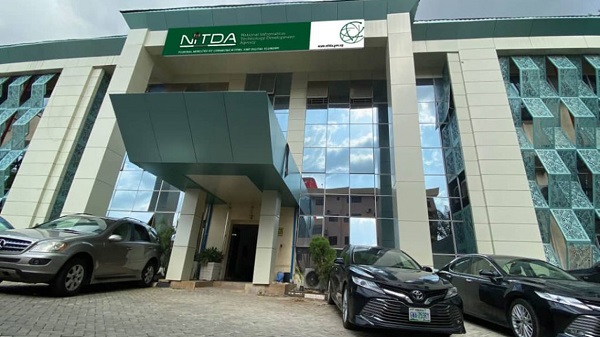• Be wary of assenting to controversial bills before exit
Telecommunications operators have kicked against their inclusion in the regulation by the National Information Technology Development Agency (NITDA) under the planned NITDA Bill currently being debated at the National Assembly.
Telcos under the aegis of the Association of Licensed Telecommunications Operators of Nigeria (ALTON), stated this in their submission to the Joint Committee of the Senate and House of Representatives on ICT and Cyber Security, during a public hearing on the bill.
In the document made available to journalists, yesterday, they submitted that including telecoms operators as entities to be regulated by NITDA would amount to multiple regulations as they are currently being regulated by the Nigerian Communications Commission (NCC).
The call comes even as other stakeholders in the entire information and communications technology (ICT) industry have urged President Muhammadu Buhari to be wary of assenting to controversial bills before May 29 handover.
Among the bills fingered is the NITDA Bill, which they said could be surreptitiously passed into law by those pushing for it. They stressed that the legislation would create serious chaos in the sector and rub it of immense contributions to the economy.
Alton in the document signed by its Chairman and Head of Operations, Gbenga Adebayo and Gbolahan Awonuga respectively, posited that most of the regulatory functions being ascribed to NITDA in the new Bill were duplicating NCC’s roles.
For instance, telcos submitted, among others that “If the Bill is passed as presently constituted, there is the risk that the Agency, acting properly under the Bill may issue regulations, guidelines, and standards with regard to the use of information technology and digital services, which will conflict with the functions of the NCC. It will also result in double and possibly conflicting regulations for telecommunications companies in Nigeria.
“In this circumstance, we humbly request that since telecommunications are already being regulated by the NCC with regards to information technology and digital services, the Distinguished Members of the Committee have telecommunication companies excluded from group of persons operators who will come under the control and regulation of the Agency with regards to information technology and digital services.”
Also, citing Section 6(1) and (12) of the Bill, which provides that the NITDA is empowered to “implement all government policies on information technology and digital economy,” and “issue and renew licenses and authorisations for the provision of information technology and digital services,” ALTON said what constitutes information technology and digital economy are defined in Section 33 of the Bill.
“By the said provision of Section 33, “Digital Economy” is defined to mean “any aspect of the Nigerian Economy that is based or driven by digital technologies,” while “Information Technology” is defined to include “all forms of technology used to create, store, exchange and use information in its various forms (business data, voice, conversation, still images, motion pictures, multimedia presentations and other forms including those not yet conceived.
Distinguished Members of the Senate Committee ICT and Cyber Security, going by the foregoing, it is apparent that the Agency is being empowered to regulate activities that are already under the purview of the Nigerian Communications Commission (“NCC”). Presently, the NCC regulates the activities of all telecommunications companies that fall within the purview of the digital economy and information technology.
“Specifically, the NCC with regard to the digital economy is responsible for the monitoring and implementation of the National Broadband Plan (2020 – 2025) and the National Digital Economy Policy and Strategy.
“Closely related to the above are the provisions of Section 6(2) of the Bill, which empowers the Agency to test and approve the use of information technology infrastructure and services before adoption in Nigeria and Section 20, which clothes the Agency with powers to make regulations and issue licenses and authorization for operators in the information technology and digital economy sector.”
Meanwhile, while calling on President Buhari to avoid assenting to bills that would pose implementation challenges to the incoming new government, the stakeholders, who spoke anonymosly, recalled that there is a tradition by some government officials to get the President to sign certain bills towards the end of his tenure, which might pose hiccups for the success of new government.
Referencing former President Olusegun Obasanjo, who at the twilight of his administration, was almost coerced into assenting the Community Radio bill by some government official, “but President Obasanjo refused it after going through the documents and said he doesn’t want to make things difficult for the incoming government.”
According to them, what President Obasanjo did was to give recommendations on some of the bills in his handover note to the incoming president.
“Though, during President Yar’Adua’s reign, he couldn’t implement this because of obvious reasons, but under President Goodluck Jonathan, he signed the bill a few months before leaving office. He asked NBC to give radio licenses. He also got a Cybercrime bill assented to in a hurry.
“Today, the Cybercrime Act 2015 has been subjected to several controversies with some stakeholders kicking that it has not been effective in helping the country tackle the rising menace of cybercrime,” the source stated.
It is on this premise that they urged President Buhari not to assent to, NITDA Bill, which is currently unsettling the sector.
Some other sources within the industry, who are closely monitoring developments around the bill told The Guardian that the bill could be among the last-minute bills to be passed into law by President Muhammadu Buhari after appending his assent giving before May 29 handover to new government.



